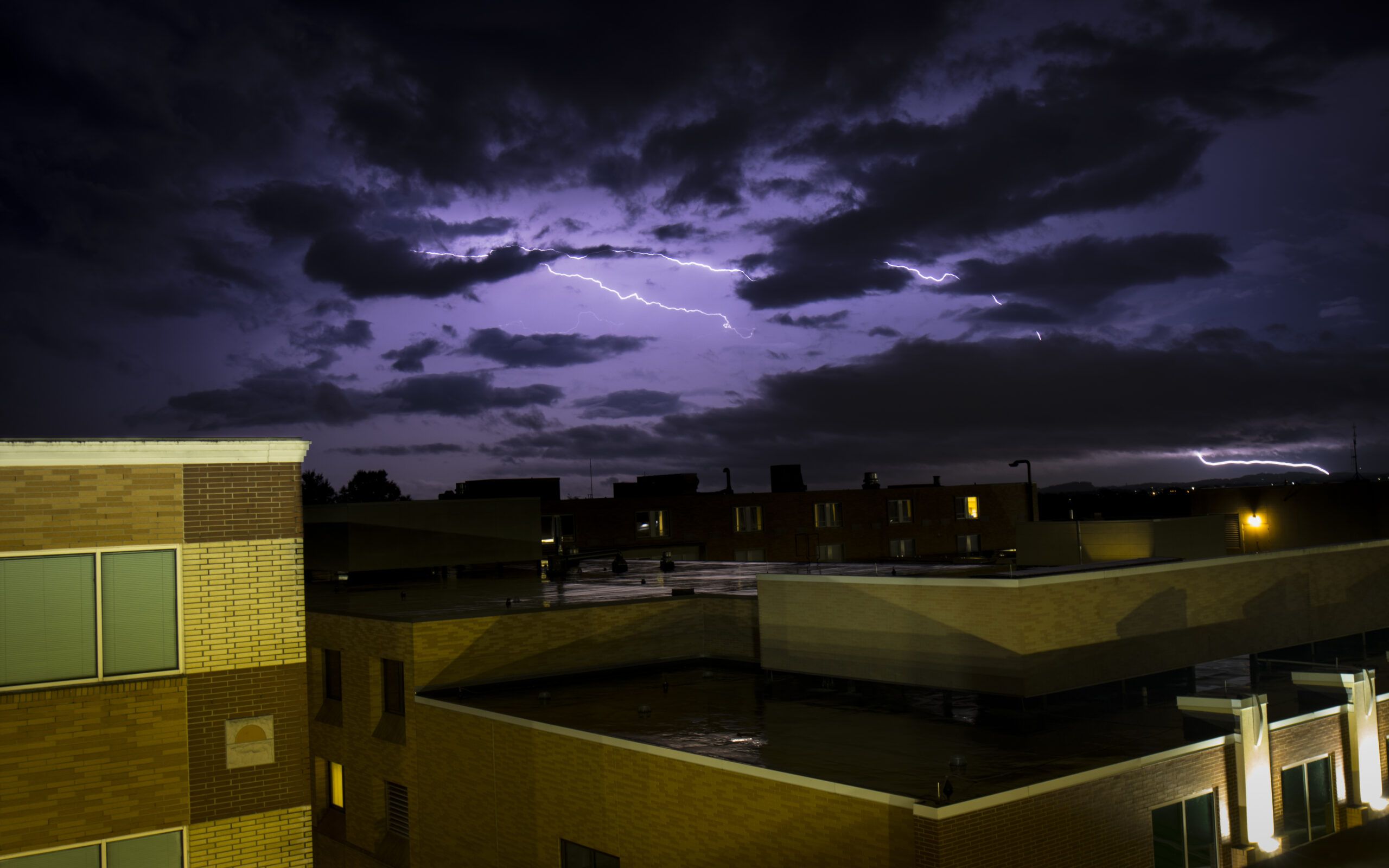Poetry
Vacant
Begin to retreat. Make
a steady return to silent comforts—
make hearing a sense that squints.
There is nothing else but
this to acknowledge—
His voice, impossible.
The first time it sounded
middle-ranged, aimed
straight ahead. In time
it grew wider, a voice
incorporating hundreds
of characters. It became
heavier than the initial
surface it carried, colored
and hot, now buoying
everyone who waded
into it. The voice
of a loved one, holding
its notes into the next measure—
where at first, it had been
just a single note.
His voice was meaning
without content—lines
not sentences. Listen to
the way it would sound,
falling into illness, into
sleep, into anything that
changes a voice—age,
coldness, degrees
of seriousness. Listen
to it whisper, in a language
that is not understood.
It whispered nothing.
Admit to having never
heard it, to not having
listened closely, or
to simply not having understood.
It will not be listened to
any longer if a voice
that beautiful
cannot sing on demand.
If it shuns, it should be
shunned. If it lies,
ignore it. If it cracks,
his voice shows him
to be someone delicate
and vulnerable and
unable to say the right
words.
Listen to anything else—
the shiny pulse of the inner ears,
blaring hum of their music.
Return to older voices
that have changed so
much they have circled
back to their first state.
His voice, like all voices,
will not last. Remember
this loss, and retreat
to a previous deafness.

Every Which Way
For Richard Serra
We seek a darkness in the deep, and
equilibrium every which way under the sea.
But the shore is relentless, insistent, it
hunts what is free, searching for
finality in the water’s infinity. It turns
us into prey—naked nightswimmers
scared of the silence in the black. Scared
of symmetry and the beasts snaking
through it. Scared of rippling heights, and
scared of the night and its threat of release.
Inevitably, we sink in the shallows, try
to forget lost coastlines, riding centerlines
through the waves. Like surfers become
water itself, we crouch, we crest, we crash.

The Pump Quench
The mug of racing time
blinks its eyes as you enter.
Words seem molecular
in your voice, a natural
gift, cool as someone else’s
rain in someone else’s city.
The brasserie’s yellow light
jaundices your eye without
dulling the furtive look you
rehearsed for decades.
It shines through the thinnest
of learned accents.
Would you be hurt if
we mistook you
for an era, rather than
a man whose son is splitting
the ungrateful atoms
of his separate parents?
He takes a puzzled horn
to his lips and explodes it just
as you would. The brass rings
a true nocturne as he nods.
Your metronome heart
beats in arrhythmic counterpoint.
Together you two travel
across states of history and
heritage. The unspoken details
cling, and weaken
your bond. You wash
them away in the English
Channel and emerge
renewed as a vow between
lovers. Both of you are
breakers, crawling ashore
together, each filled with
the electricity of future life.
Critique
bred in the bone of a nuclear world
poor parents, levelled by history
they had no idea
status anxiety as toxic as success
at first I read their script by rote
(not knowing what a Red was)
my mother at the dinner table
Girls, listen to your father; he’s a smart man.
I thought (trying not to roll my eyes)
must be the “man” part
I could tell you
I escaped from the basement
where I was chained to a pipe and starved
or that I was one of the chiefs, crawling to Kurtz
or refused to admit the difference
between a sheep and a wife
or maybe I was the Sybil
turned to dust, suspended in a bottle
mocked by passing boys
because I wouldn’t fuck Apollo
while what really happened was bad enough
static chatter in an anxious family
later, we thought nothing could go wrong
(though everything was)
the surrogate parents (teachers)
not much better than the real ones
self serving,narcissistic
the wrong gender, the right race
damage the effect of neglect
stupidity ever the base
mistaking attention for rescue
seduced by a Magritte window
out of claustrophobia
night school saved my life
islands of intelligence
made to feel like a somebody
the first few hits were free
then hooked, betrayed, ignored
consigned to the garbage heap
not knowing the difference
between middle hell
and the mean of a crappy structural heap
regret rien oh! contraire
momentary terror
at the turbulence of descent
you stay with the trouble
this origin story stands:
never a victory narrative
you’d stake your life on

City Exegesis
3 A.M. turns cities into earlier centuries.
The streets turn into lanes. Streetlights into lanterns. Faces become countenances. The sky shows up gloomy.
It’s 3 A.M. in Lower Manhattan. The arsonist strolls into the frame wearing tennis shoes, a hoodie, cargo shorts, and a little kid’s backpack. His casual countenance reveals his gross misunderstanding of the facts. Sure, 3 A.M. lends itself to dreamy yearnings. But he shouldn’t downplay reverie. A serious enterprise: The songs we believe in after midnight are synonymous with the year I spent trapped in an apartment among living and dead mice, didn’t bathe once, and arrived two hours early to a party (that I was barely invited to) with cuts all over my face from the disposable razor. But don’t ever forget this either: Years later, in the dining car of the Coast Starlight, I took the porter’s advice and leaned out the door of the moving train to celebrate the blue and orange wind.
The arsonist crosses mid-block, carrying a Bic lighter, looking like he needs a shower, and believing in the Old Testament’s politics of fire. The footage catches him in the act. He walks toward the outdoor dining canopy in front of Prince St. Pizza, holds the lighter to it, flips back his biblical hair, and then strolls away as a bush of flames grins for the camera. The incriminating video startled the city and helped the police tie him to at least one other felony arson two blocks away where another outdoor dining tent had been burned down.
It turns out, this arsonist was none other than Food & Wine’s recent Sommelier of the Year. Once the wine director at Eleven Madison Park, the best restaurant in the world, according to the New York Times. And currently, at 35, the managing partner at La Compagnie des Vins Surnaturels, his own successful Soho bar. You’d think curating cups of wine would make him an ally to the city’s singers, belly-dancers, sorcerers, workers, jesters, shop owners, smooth-skinned lads, and spies. The outdoor dining tents that have replaced parking spaces worldwide are theirs. Restaurants at night that turn into parks during the day; that turn into vaccine clinics, pop-up clothing shops. Dining cars on trains.
The sommelier’s crime insinuates more than arson. I’d charge him with ignoring this century’s yearnings. I want to sit him down and tell him: The city is not against you. The night is for you. For you, who doesn’t want to know. For you, who doesn’t even know what’s happening. For you, who wants to know, but is too shy to ask. Drink your four cups of wine, children. From here on out, the Old Testament doesn’t have to be the sole domain of pyromaniacs.
Infrastructure
The head understands
bodies create more space than
they eliminate.
The exact same math defines
the souls of elevators.

